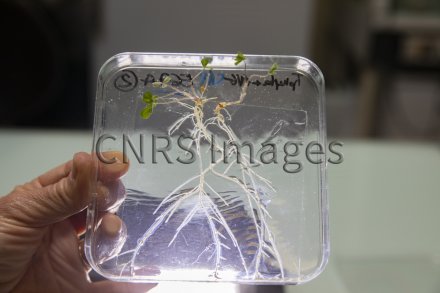Production year
2021

© Frédéric MALIGNE / LIPME / CNRS Images
20210151_0079
Transformation racinaire de luzerne tronquée, "Medicago truncatula", cultivée in vitro. Cette plante légumineuse interagit avec les bactéries rhizobia du sol. Ces interactions mènent à la formation de nodules racinaires qui hébergent les bactéries, et permettent à la plante d’acquérir l'azote, un nutriment essentiel pour leur croissance. En agriculture, cela représente un intérêt particulier pour réduire les apports d'engrais azotés.
The use of media visible on the CNRS Images Platform can be granted on request. Any reproduction or representation is forbidden without prior authorization from CNRS Images (except for resources under Creative Commons license).
No modification of an image may be made without the prior consent of CNRS Images.
No use of an image for advertising purposes or distribution to a third party may be made without the prior agreement of CNRS Images.
For more information, please consult our general conditions
2021
Our work is guided by the way scientists question the world around them and we translate their research into images to help people to understand the world better and to awaken their curiosity and wonderment.